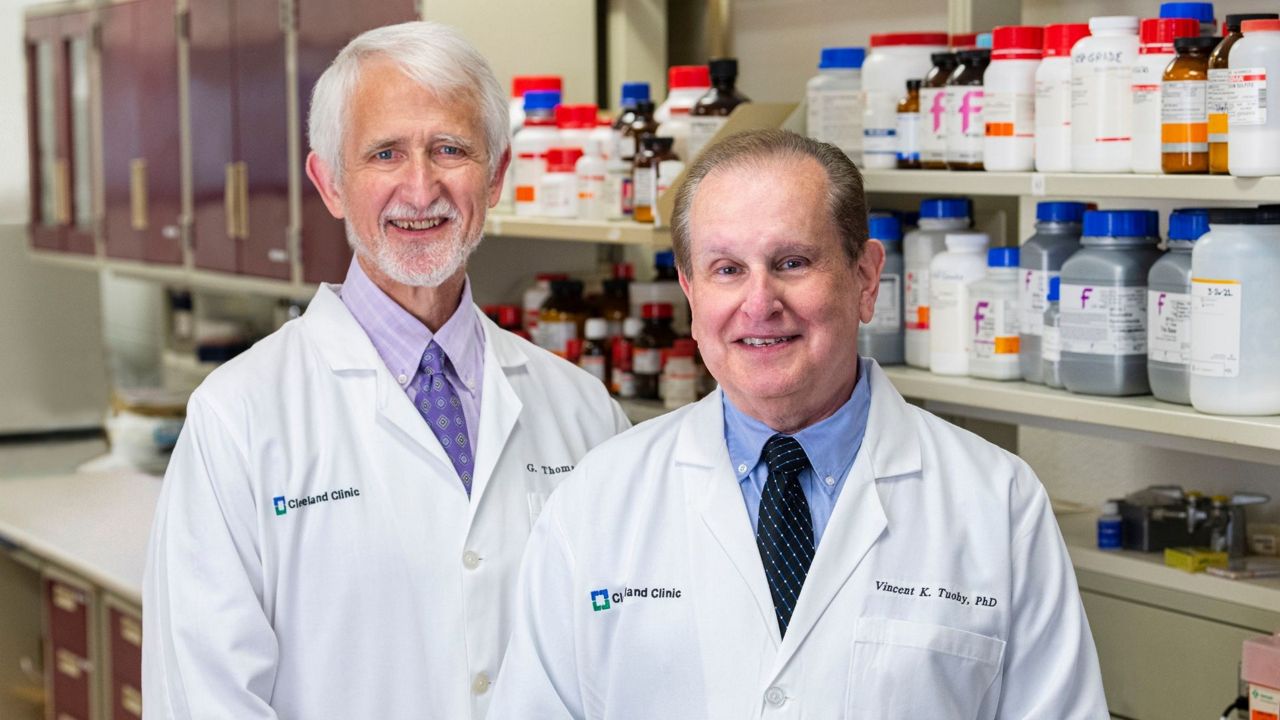CLEVELAND — The Cleveland Clinic announced Tuesday it is studying a breast cancer vaccine which is aimed at preventing the most aggressive and lethal form of the cancer.
The vaccine is intended to prevent triple-negative breast cancer, which the American Cancer Society reports causes 10-15% of all breast cancers.
“Triple-negative breast cancer differs from other types of invasive breast cancer in that they grow and spread faster, have limited treatment options, and a worse prognosis,” the American Cancer Society states on its website.
The Cleveland Clinic’s vaccine trial is at Phase 1 and will determine the maximum tolerated dose that will provide the best immune response.
The new study will be funded by the U.S. Department of Defense. The study will include 18-24 patients who had early-stage, triple-negative breast cancer in the past three years. These patients are currently cancer free, but have a high risk of redeveloping breast cancer.
The participants will each receive three doses, each dose two weeks apart and will be monitored for side effects and immune response. The Cleveland Clinic expects the study to conclude September 2022.
The Cleveland Clinic said the vaccine targets a breast-specific lactation protein, α-lactalbumin, which is present in most triple-negative breast cancers. In a study of mice, the Cleveland Clinic said that activating the immune response against the α-lactalbumin protein was safe and effective in breast tumors. A single vaccine could prevent tumors from developing and existing tumors from growing in mice, researchers said.
“This vaccine approach represents a potential new way to control breast cancer,” said Vincent Tuohy, Ph.D., the primary inventor of the vaccine and staff immunologist at Cleveland Clinic’s Lerner Research Institute. “The long-term objective of this research is to determine if this vaccine can prevent breast cancer before it occurs, particularly the more aggressive forms of this disease that predominate in high-risk women.”
The Cleveland Clinic expects a subsequent trial will include healthy, cancer-free women who are at a high risk of developing cancer.
“This vaccine strategy has the potential to be applied to other tumor types,” said Tuohy. “Our translational research program focuses on developing vaccines that prevent diseases we confront with age, like breast, ovarian and endometrial cancers. If successful, these vaccines have the potential to transform the way we control adult-onset cancers and enhance life expectancy in a manner similar to the impact that the childhood vaccination program has had.”



